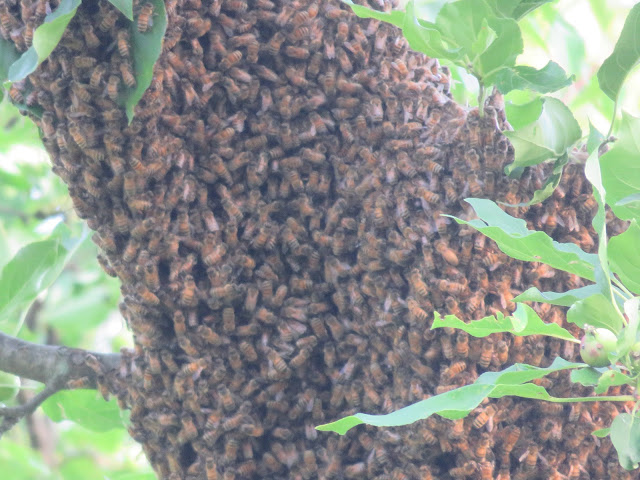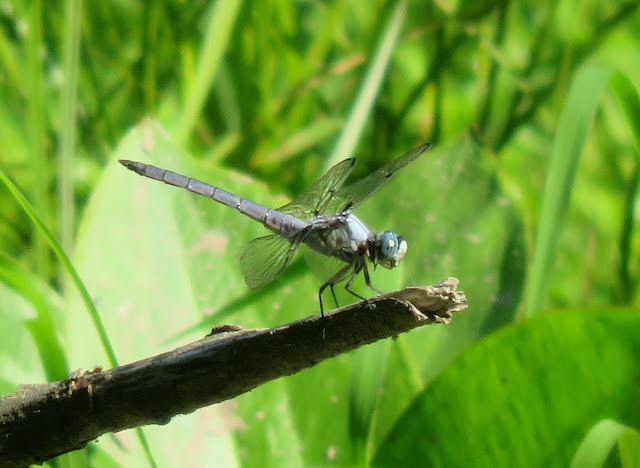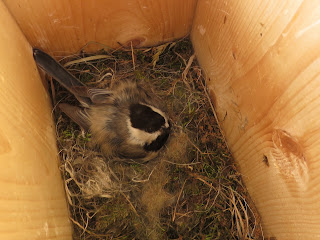Our hive swarmed a few weeks ago. A new Queen bee must have hatched. When this happens the old Queen takes part of the hive and leaves. She flew to that branch and was soon covered with several thousand bees. Scout bees flew out in all directions in search of a new home. When one of them finds what it judges to be a suitable home it returns to the swarm and leads them to their future hive. This will reduce our amount of honey that we can harvest this fall but that's OK. Our purpose for having bees is to help their population grow and a new "wild" hive will do just that.
Dragonflies fascinate me. The most efficient predator on earth, if they had a 6 foot wingspan they would rule the world. Their success ratio when on the hunt runs from 90 to 95%. Their 4 wings can move independently allowing them to fly forward, backward, sideways and up and down. But the most fascinating fact is how they capture their prey. All other predators chase their prey, but a dragonfly can calculate where their prey is heading and intercept it in flight. Man is the only other creature on earth with that ability. To me that makes them incredible creatures.
Even with the bear damaging several of my birdboxes I'm still having a very successful year, with Bluebirds, Chickadees, Tree Swallows and Wrens hatching chicks.
My apple trellis is going to give me a taste of several different varieties this year, with names like Kidd's Red Orange, Keener's Seedling, Swiss Limbertwig, Pixie Crunch, and Crimson Gold.
My Cochin bantam breeding hobby is going great guns this summer with 50+ chicks hatched so far. I've sold a few and culled a few but will be keeping most until fall to see how they mature before deciding who to keep and who to sell.





























